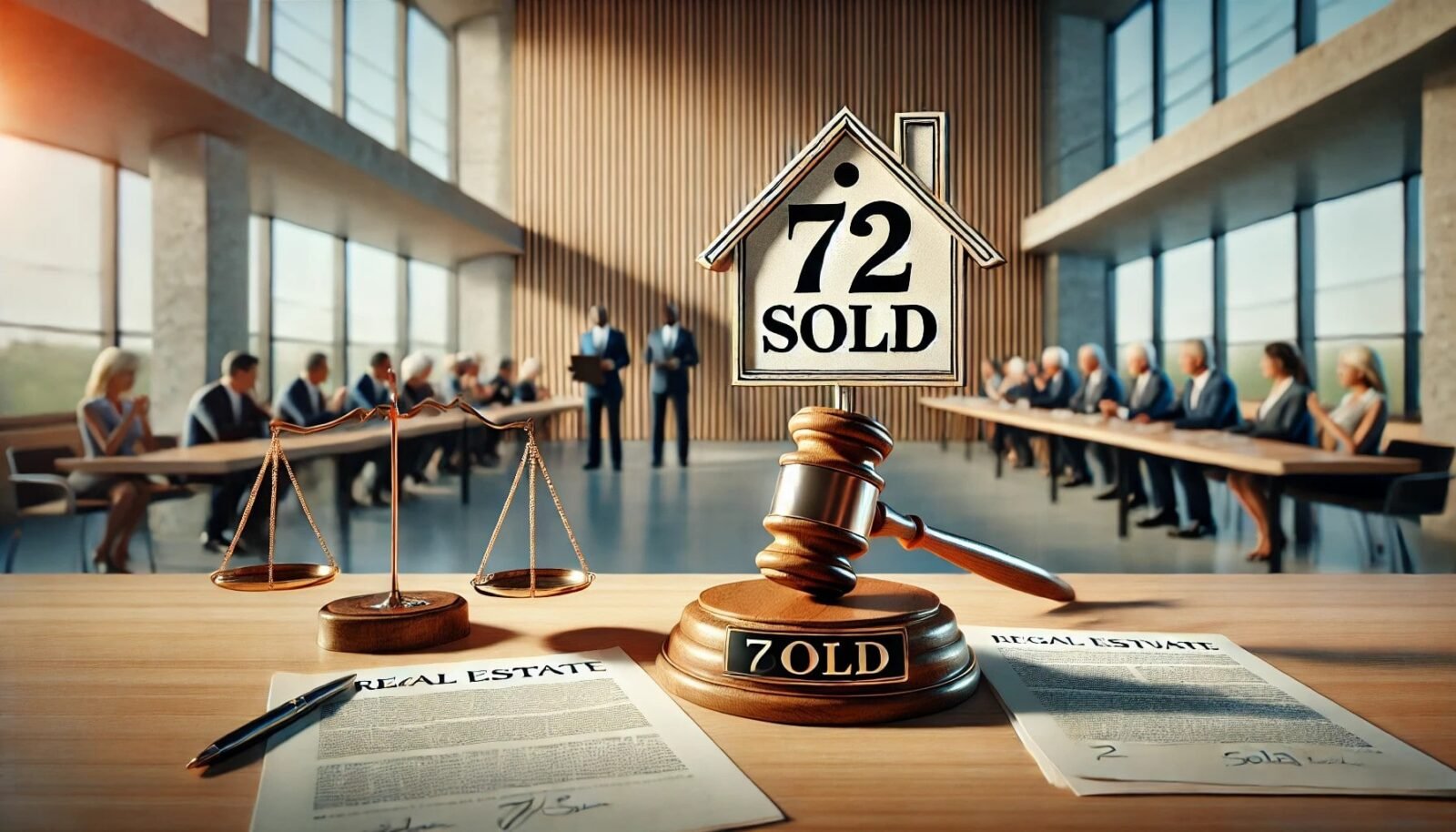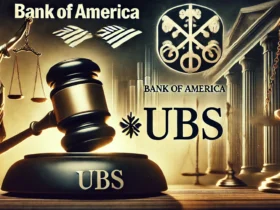What is 72 Sold?
72 Sold is a real estate company that claims to help homeowners sell their homes quickly, usually within 72 hours. The company is known for its fast and simplified home-selling process, which is different from traditional real estate methods.
Brief overview of the real estate company, its business model, and how it operates:
- 72 Sold focuses on providing a quick way to sell homes.
- The company creates a marketing plan to attract buyers fast.
- They aim to avoid lengthy processes like open houses and negotiations.
Explanation of why 72 Sold is popular in the real estate market:
- The promise of selling homes quickly, usually within 72 hours, appeals to homeowners who want fast results.
- Their model saves time and effort for people who don’t want long, drawn-out sales.
- This has made 72 Sold popular among sellers looking for a quick solution.
Background of the 72 Sold Lawsuit
The 72 Sold lawsuit refers to legal action taken against the company for various claims. The lawsuit brings attention to possible issues in the way 72 Sold operates its business, specifically its marketing and customer service practices. The focus of the case is on whether the company’s promises about quick home sales were misleading or did not deliver as advertised. These legal actions have raised questions about how 72 Sold markets its services and whether it complies with consumer protection laws.
Overview of the lawsuit: Who filed it? What are the key claims and issues?
- The 72 Sold lawsuit was filed by customers who claim that the company did not fulfill the promises made in their advertisements. Some customers believe that the services they received were not as fast or effective as promised. The key issue is that the company may have used misleading marketing tactics.
When and where was the lawsuit filed?
- The 72 Sold lawsuit was filed in local courts depending on the customers’ location, and the timing of these cases can vary based on specific incidents.
Parties involved in the lawsuit (individuals, companies, regulatory bodies, etc.)
- The parties in the 72 Sold lawsuit include individual customers, the company itself, and sometimes regulatory bodies like consumer protection agencies that oversee business practices.
Allegations Against 72 Sold
The 72 Sold lawsuit includes several serious allegations against the company. Customers and other parties involved have raised concerns about the company’s business practices, leading to claims of potential wrongdoing. These allegations focus on how 72 Sold promotes its services and whether it has been truthful in its marketing and agreements with customers. The lawsuit aims to uncover if the company has engaged in activities that are against the law or unethical in nature.
Detail the main allegations brought forward in the lawsuit:
- The primary allegations in the 72 Sold lawsuit involve claims that the company made false promises to customers. Many customers allege that the company did not deliver on its promise to sell homes within the advertised 72 hours.
Mention any accusations related to fraud, deceptive marketing, breach of contract, or unethical business practices:
- Accusations in the 72 Sold lawsuit include claims of fraud, where the company is said to have misled customers about its ability to sell homes quickly. There are also allegations of deceptive marketing, where advertisements may have misrepresented the services offered. Some claim that 72 Sold may have violated contracts, leading to a breach of contract accusation, along with potential unethical business practices.
Discuss customer complaints or competitor claims:
- Many customer complaints suggest that 72 Sold did not meet expectations or failed to follow through on its promises. In addition, some competitors have accused the company of using unfair marketing practices that give 72 Sold an advantage in the market. These complaints and claims are central to the ongoing 72 Sold lawsuit.
Legal Basis for the 72 Sold Lawsuit
The 72 Sold lawsuit is built on various legal principles that protect consumers and ensure fair business practices. The main issue revolves around whether 72 Sold has violated laws designed to protect customers from misleading or unfair business conduct. The case seeks to determine if the company’s actions fall outside the bounds of accepted legal standards in real estate and marketing.
Explanation of the legal principles being invoked in the case:
- The lawsuit against 72 Sold is grounded in laws related to consumer protection. These laws ensure that businesses provide honest and accurate information to customers. One of the key allegations is false advertising, where 72 Sold is accused of making promises in their marketing that do not align with the actual services provided. Another principle being invoked is breach of contract, where the company may not have fulfilled agreements made with homeowners.
Reference to any specific statutes or legal precedents cited:
- Specific statutes likely include laws regarding truth in advertising, which require companies to avoid misleading claims. Other legal precedents may involve contract law, where previous cases have set standards for how companies must honor agreements with customers. The 72 Sold lawsuit may also refer to state-specific consumer protection acts that aim to prevent unfair or deceptive practices in real estate transactions.
Potential Impact on 72 Sold’s Business
The 72 Sold lawsuit could have significant effects on the company’s reputation and business operations. Legal issues like these can harm a company’s public image, especially when customers feel that they have been misled or treated unfairly. If the lawsuit gains more attention, it could lead to a loss of trust from both current and potential clients, making it difficult for 72 Sold to attract new business.
Analysis of how the lawsuit could affect 72 Sold’s reputation and business operations:
- The 72 Sold lawsuit could damage the company’s reputation by highlighting negative experiences of past clients. If the company is found to have engaged in misleading practices, it may be difficult for them to recover their reputation as a trustworthy real estate service. This could lead to reduced business operations and a decline in customers using their service.
Could it impact the real estate market or disrupt their customer base?
- The lawsuit may also disrupt 72 Sold’s customer base. Homeowners who are considering using their service might rethink their decision, leading to a loss in business. If more people hear about the 72 Sold lawsuit, it could discourage others from engaging with the company, impacting their position in the real estate market.
Speculation on possible financial implications, settlements, or penalties:
- Financially, the 72 Sold lawsuit could lead to significant penalties, settlements, or legal fees. If the court finds the company liable for any wrongdoing, they may be required to pay large sums in compensation to affected customers or competitors. In addition, the lawsuit could force 72 Sold to change its business practices, which could result in financial losses.
Responses from 72 Sold
The 72 Sold lawsuit has prompted the company to respond to the allegations made against them. In such legal cases, companies often release official statements to defend their business practices and reassure their clients. 72 Sold has likely taken steps to explain their side of the story and counter the claims made in the lawsuit.
Any official statements or defenses put forward by 72 Sold:
- In response to the 72 Sold lawsuit, the company may have issued a formal statement denying any wrongdoing. They could argue that their business model is built on legitimate marketing practices and that their services are transparent and fair. 72 Sold might also claim that they have fulfilled their contracts and that the lawsuit is based on misunderstandings.
Quotes from company representatives or legal counsel addressing the lawsuit:
- Representatives or legal counsel for 72 Sold might say something like, “We stand by the integrity of our business model and will vigorously defend against these unfounded claims.” Such quotes are often aimed at reassuring customers and maintaining public trust.
Discussion of how 72 Sold plans to address or resolve the situation:
- 72 Sold could plan to resolve the lawsuit by negotiating settlements with affected parties or by making adjustments to their business practices to avoid future legal issues. They may also review their marketing strategies to ensure compliance with consumer protection laws, demonstrating a willingness to resolve the concerns raised in the 72 Sold lawsuit.
Previous Legal Issues Faced by 72 Sold (If Any)
In addition to the current 72 Sold lawsuit, the company may have faced legal challenges in the past. Exploring these previous legal issues can give insight into the company’s history of handling disputes and customer complaints. If there have been past lawsuits, they could reveal patterns in the company’s business practices or marketing strategies that have led to repeated legal scrutiny.
Exploration of any past lawsuits or legal troubles the company has been involved in:
- If 72 Sold has been involved in past lawsuits, those cases might have focused on similar issues, such as deceptive marketing, breach of contract, or consumer dissatisfaction. These cases could have been brought by customers, competitors, or regulatory bodies accusing 72 Sold of unfair business practices. Each lawsuit may have focused on how the company promotes its home-selling services or the accuracy of its advertising claims.
Lessons learned and how the company has evolved (or not) based on those cases:
- From any past legal troubles, 72 Sold may have made changes to improve transparency and customer relations. Lessons from these cases could include refining their marketing approach to be more clear and accurate or improving customer service to prevent future disputes. On the other hand, if the company has not evolved based on previous lawsuits, this could suggest ongoing challenges in meeting legal and ethical standards. The current 72 Sold lawsuit might reflect unresolved issues from past cases, indicating that the company still faces hurdles in complying with industry regulations.
Public and Industry Reactions to the 72 Sold Lawsuit
The 72 Sold lawsuit has sparked a range of reactions from the real estate industry, legal professionals, and the general public. Whenever a well-known company faces legal trouble, it often generates discussion, debate, and varying opinions on the seriousness of the allegations. The lawsuit has likely led to scrutiny of 72 Sold’s business practices and could influence how the industry views the company going forward.
Reactions from real estate experts, competitors, or legal professionals:
- Real estate experts may view the lawsuit as a reflection of challenges within the fast-sale business model, questioning whether such promises are realistic. Some competitors could see this as an opportunity to position themselves as more transparent or reliable. Legal professionals analyzing the case might discuss the validity of the claims and whether 72 Sold has indeed crossed legal boundaries regarding advertising and contract practices.
Impact on customer trust and confidence in the company:
- The 72 Sold lawsuit could lead to a decline in customer trust and confidence. Homeowners who were considering using 72 Sold may now hesitate, fearing that the company’s promises might not be fulfilled. Existing customers may also lose confidence in the company’s ability to deliver on their advertised services. The lawsuit might cause potential clients to seek out other real estate services that appear more reliable and legally sound.
Analysis of social media or news outlets discussing the case:
- Social media discussions often amplify public reaction to lawsuits, with customers sharing their own experiences or opinions about the company. Posts and comments may either support 72 Sold or express frustration about the allegations. News outlets covering the 72 Sold lawsuit may analyze the broader implications for the real estate industry and what this case could mean for other companies using similar business models. This media attention can either hurt or help the company, depending on how they respond to the public and the press.
Legal Process and Timeline
The 72 Sold lawsuit will follow a typical legal process that begins when the case is officially filed in court. The timeline of the lawsuit includes several key steps, starting with the initial filing and continuing through to a possible trial or settlement. Each stage of the legal process could take several months or even years, depending on the complexity of the case and the court’s schedule.
Explanation of the timeline for the lawsuit, including any scheduled court dates or legal procedures:
- After the 72 Sold lawsuit is filed, there is usually an initial hearing, where the court sets deadlines for both sides to submit evidence, documents, and legal arguments. The lawsuit may go through pre-trial motions and hearings where the company’s legal team could attempt to have the case dismissed or settled. If the lawsuit continues, the court will schedule discovery, where both sides gather evidence and take depositions. After this, a trial date could be set, or the case might move into settlement discussions.
Possible scenarios for resolution, including settlements or trial outcomes:
- There are several potential outcomes for the 72 Sold lawsuit. The case could be settled out of court, with 72 Sold agreeing to pay damages or make changes to its business practices without admitting fault. Another possibility is that the case goes to trial, where a judge or jury would decide whether 72 Sold is guilty of the allegations. If found liable, the company could face financial penalties, required changes in their operations, or other legal consequences. There is also a chance that 72 Sold could win the case if the court finds the claims unproven.
What Happens Next: Potential Outcomes of the 72 Sold Lawsuit
The 72 Sold lawsuit could have a number of different outcomes, each with varying degrees of impact on the company and the broader real estate industry. The legal process will determine whether the company faces penalties, changes in business operations, or clears its name entirely. How the case unfolds will also set the stage for future actions involving similar business models in the real estate market.
Discussion of potential legal outcomes (e.g., fines, settlements, changes in business practices):
- If 72 Sold is found guilty of the allegations, the company could face fines or financial penalties. The lawsuit may also result in settlements, where the company agrees to compensate customers without admitting guilt. Additionally, 72 Sold may need to make changes to their business practices, such as adjusting their marketing claims to avoid misleading consumers or ensuring clearer contracts with customers. These changes could alter how they operate in the real estate market.
What could happen if 72 Sold wins or loses the case:
- If 72 Sold wins the case, their reputation could be restored, and they may continue business as usual. A victory could boost customer confidence and validate their business model. However, if they lose the lawsuit, the company could face significant financial losses and possible damage to their brand, causing customers to lose trust in their services. Losing the case may also force 72 Sold to adjust their practices or even limit their operations in certain markets.
Speculation on how the lawsuit may set legal precedents in the real estate industry:
- This lawsuit could potentially set legal precedents in the real estate industry, especially regarding how companies advertise fast-selling services. If the court rules against 72 Sold, it may lead to stricter regulations and oversight of real estate marketing practices. Other companies in the industry may be more cautious about their advertising claims to avoid facing similar lawsuits. The case could influence future legal disputes in the real estate market, especially around consumer protection laws.
Advice for 72 Sold Customers and Real Estate Professionals
The 72 Sold lawsuit raises important considerations for both current customers and real estate professionals. Understanding the implications of the lawsuit is crucial for those thinking of working with the company or already in the process of selling their homes through 72 Sold. Being informed can help make better decisions and avoid potential issues.
What current or potential 72 Sold customers need to know about the lawsuit:
- 72 Sold customers should be aware of the allegations involved in the lawsuit, especially claims of misleading advertising and failure to meet promises. If you are considering using 72 Sold, it’s essential to review the terms of the service and ask questions about the actual timeline and results they can deliver. Customers already in the process may want to stay updated on the progress of the case, as it could affect their experience or the company’s ability to deliver on its promises. You should also carefully read contracts and consult a legal expert if you have any concerns.
Recommendations for real estate professionals working with or considering partnerships with 72 Sold:
- For real estate professionals, it’s important to approach partnerships with 72 Sold cautiously in light of the lawsuit. You may want to evaluate whether working with the company aligns with your professional values and standards, especially regarding transparency and customer satisfaction. If you are already collaborating with 72 Sold, keep an eye on how the lawsuit progresses, as any legal consequences could affect your business relationship. Consider advising clients to weigh all options and ensure they fully understand the risks involved before choosing 72 Sold.
Conclusion
The 72 Sold lawsuit raises important questions about the company’s business practices and marketing. Customers have accused 72 Sold of misleading promises, and this has led to legal action. The outcome of the 72 Sold lawsuit could impact the company’s reputation and operations. If the company is found guilty, it could face penalties or changes in how it does business. If 72 Sold wins, they might restore their name in the real estate market. The case could also set legal precedents for the real estate industry. It is important for customers and real estate professionals to stay informed about the 72 Sold lawsuit and understand its possible effects.
FAQs
What is the 72 Sold lawsuit about?
The 72 Sold lawsuit is about allegations that the company made false promises to customers. Some customers claim that 72 Sold did not deliver the fast home-selling service it advertised.
Who filed the lawsuit against 72 Sold?
The 72 Sold lawsuit was filed by customers who were unhappy with the company’s services. They believe the company’s marketing was misleading.
How could the lawsuit affect 72 Sold?
The 72 Sold lawsuit could harm the company’s reputation and lead to penalties. The company may also have to change its business practices if it loses the case.
What should I do if I am a 72 Sold customer?
If you are a 72 Sold customer, stay updated on the 72 Sold lawsuit. It is important to understand how it could impact your home sale.
What happens if 72 Sold wins the lawsuit?
If 72 Sold wins the lawsuit, the company may continue its operations as usual. It could restore customer trust and confidence.
Read For More Amazing Blogs Law Firm Genius.
















Got a Questions?
Find us on Socials or Contact us and we’ll get back to you as soon as possible.